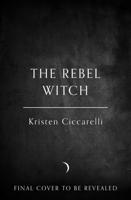Publisher's Synopsis
This historic book may have numerous typos and missing text. Purchasers can usually download a free scanned copy of the original book (without typos) from the publisher. Not indexed. Not illustrated. 1906 edition. Excerpt: ... NIETZSCHE NIETZSCHE was the pupil of Stendhal and Goethe, and followed their lead in accentuating the ego, and aiming at individuality, selfness, and the longing for passions mightier and stronger. But in him the warrior-stamp was more deeply impressed than in either of his masters; for they, despite their definition of purpose, could not altogether look away from the comfort proffered to them by their gloomy surroundings, and had not the courage to cut the hawser that still kept them moored to the ancient scheme. Nietzsche also had suffered more from the pessimistic teaching than Stendhal and Goethe; as a youth he had deeply fallen under the influence of the two great Christian pessimists and unhealthy romantic conjurers, Schopenhauer and Wagner. Later in life, the good luck befell him to espouse the cause he was afterwards to combat; and, for this reason, there could be found no more dangerous foe, none who knew the flaws in the armour of Christianity better, no more merciless enemy, than this gifted deserter and proselyte. It is a Jewish saying that Jewish converts make the most virulent antisemites; Christians in Turkey dread those of their own coreligionists most of all who have gone over to Islam and Turkish officialdom. None wounds more cunningly than a former friend; and if the change of one aspect of Judaism for another be potent enough to create this antagonism, how much more must a conversion effect from Christianity to paganism, from the sick-house to the open air, from self-tortured conscience to the glorious blitheness of the laughing sunshine ?" Oh! the years I have lost," will be the exclamation of a man, if he be not philosophical, and not possess Friedrich Nietzsche's appreciation of the value of sorrow in education....























